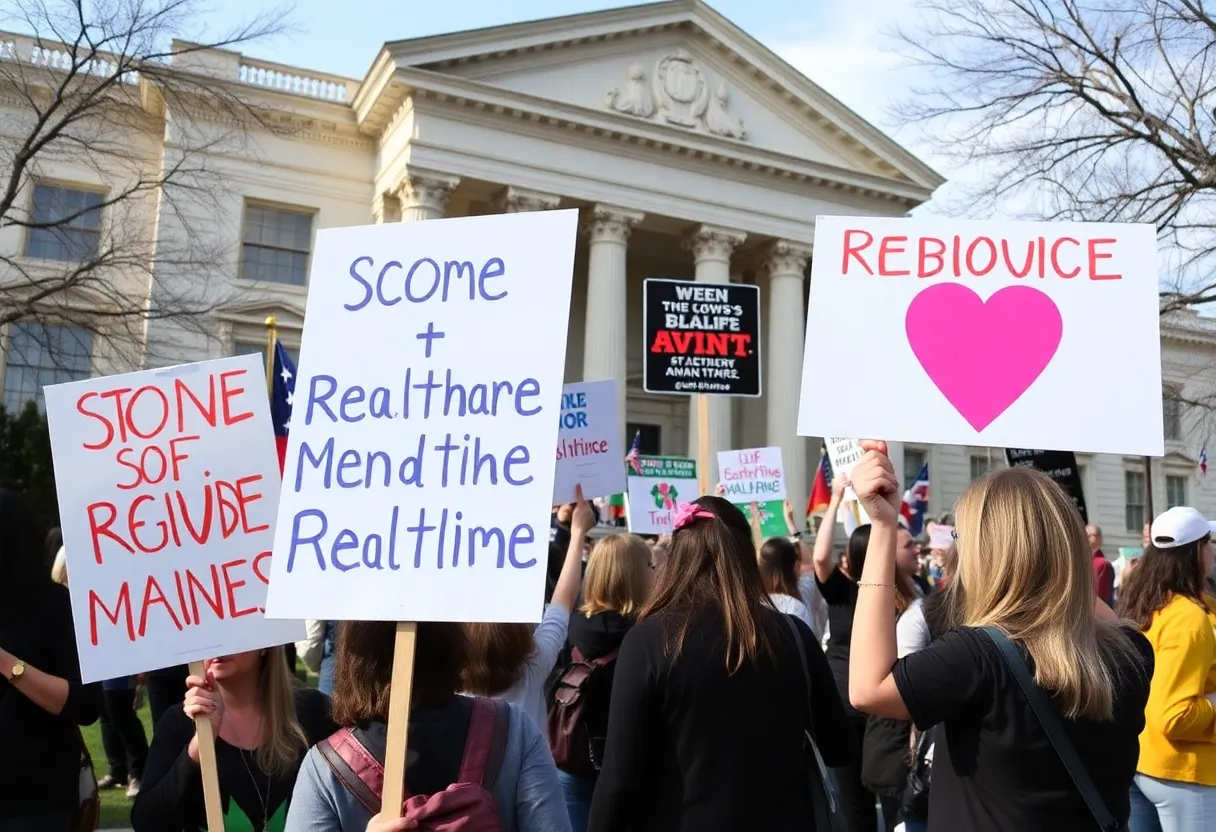News Summary
The Human Life Protection Act, sponsored by nearly 40 Republicans in the South Carolina State House, proposes a total abortion ban with limited exceptions. This bill is stirring significant protests and raising concerns among healthcare professionals over its implications on women’s reproductive rights and health. As the debate intensifies, legal challenges and the potential impact on healthcare providers remain unresolved.
Columbia, South Carolina: A Controversial New Bill on Abortion
In a move that’s stirring the pot within the Palmetto State, nearly 40 Republicans in the South Carolina State House have come together to sponsor a new bill aimed at implementing a total abortion ban, known as the Human Life Protection Act. This proposed legislation has been making waves, especially following a lengthy discussion during a recent House Judiciary Committee hearing.
A Shift in the Legal Landscape
As it stands, South Carolina has a six-week abortion ban that allows exceptions for rape, incest, and in cases where the mother’s life is at risk. However, the Human Life Protection Act is set to shake things up significantly. The bill proposes to limit exceptions solely to medical emergencies that could endanger a pregnant woman’s life or pose a serious risk of substantial or irreversible health impairment. Notably, there would be no exceptions for cases of rape or incest under the new law.
This move has provoked a wave of protests outside the State House during the committee meeting, highlighting the deep divide in opinions over reproductive rights in the state.
Potential Consequences for Medical Professionals
If the bill passes, it will introduce strict penalties for doctors who perform abortions without adhering to the newly defined exceptions. They could potentially face up to two years in prison and a hefty $10,000 fine if found in violation, except in instances deemed necessary for medical emergencies. This drastically heightens the stakes for medical professionals already navigating a complicated legal landscape.
Furthermore, the bill mandates that emotional or psychological health challenges, including suicidal thoughts, will not qualify for abortion access. This lack of consideration for mental health concerns has alarmed many healthcare providers and advocacy groups, who argue that such a stance could severely impact the wellbeing of vulnerable patients.
A Strict New Documentation Process
Under the proposed bill, doctors will be required to meticulously document the medical necessity for performing an abortion and note any efforts made to save the fetus. This documentation must be included in the woman’s medical records within 30 days, with records retained for a minimum of seven years. Additionally, abortions must be reported to the State Registrar and the Department of Public Health within just seven days.
Although there is some allowance for contraceptive access and reproductive technologies like in vitro fertilization, the overall tone of the bill raises significant concerns about reproductive freedoms.
Legal Challenges Looming
In what seems to be a continuous legal tug-of-war, the South Carolina Supreme Court has recently heard arguments from Planned Parenthood questioning the legality surrounding abortion timing based on fetal heartbeat detection. Meanwhile, five doctors have filed a complaint against the state’s existing abortion ban in federal court, citing cases where delays in treatment have adversely affected patient health.
Critics of the proposed legislation assert that it introduces unconstitutionally vague terms, particularly concerning health exceptions. Medical professionals opposing the Human Life Protection Act express they are caught in an ethical dilemma, forced to choose between honoring their personal beliefs and following state law.
What’s Next for South Carolina?
As the debate over reproductive rights continues to intensify in South Carolina, the implications of this bill reveal the complexities and challenges surrounding the issue of abortion. The discussions within the State House do not merely reflect political posturing; they echo deeper societal conversations about women’s rights, health care, and personal freedoms.
As lawmakers move closer to a potential vote, all eyes will be on how this bill, with its sweeping changes, will impact the lives of countless South Carolinians. Will it solidify the divided viewpoints on abortion within the state, or will it spark a more profound call for dialogue around reproductive rights? Only time will tell, but one thing is clear: the conversation is far from over.
Deeper Dive: News & Info About This Topic
HERE Resources
New Parking Rates and Modern Upgrades in Columbia
Columbia Activist Stands Firm in Anti-Abortion Fight
South Carolina GOP’s Freedom Caucus Sparks Controversy with Bold Legislative Agenda
Additional Resources
- ABC Columbia: Lawmakers Debate Near Total Abortion Ban
- Post and Courier: Doctors Sue Over South Carolina Abortion Ban
- ABC News 4: Protests Erupt as SC Bill Seeks to Ban All Abortions
- Google Search: Abortion Law South Carolina
- Wikipedia: Abortion in the United States








